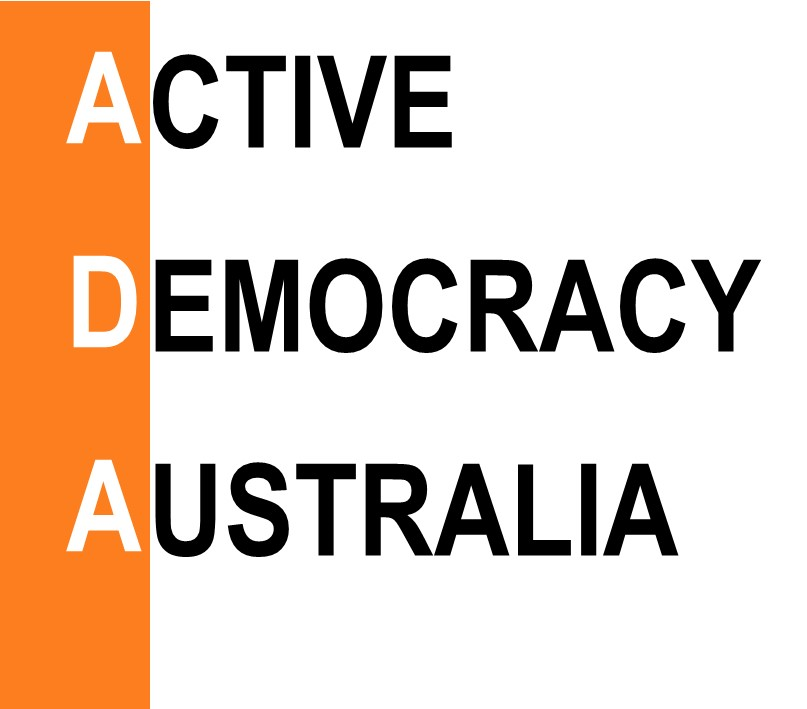Doing politics differently: New values for our democracy, and for your electorate group
A large part of why politics isn’t working well in Australia is because of the values – or lack of values – it too often exhibits, and the practices this leads to. There are good people in politics doing good work, but there is also much to be improved. We see MPs:
- bowing to the influence of the rich and powerful, the lobbyists and party donors, and hiding this from the public
- ignoring the evidence that should drive good policy making
- ignoring the broadly-held views of Australian voters
- verbally abusing opponents in parliament and other public forums
- speaking in ways that obscure the truth rather than clarifying it
- quietly disregarding promises, or delaying them ad infinitum
- flouting accepted ministerial and parliamentary procedures with impunity.
These practices not only make politics less functional, they also disillusion voters and cause them to disengage from politics, which makes the problem worse. What our politics needs is a values change.
The following are values that we suggest your electorate group considers adopting, to guide your own actions, and to help you envisage the sort of representation and the kind of democracy you are working to achieve. They are written as you might write them if adopting them.
Civility and respect
We treat everyone with courtesy and respect, and listen to them, whatever our differences and disagreements may be. People are entitled to be treated this way, the world is a safer and more pleasant place if they are, and we are likely to learn and achieve more from talking with people rather than at them.
Focusing on better policies and practices
The purpose of politics is to create a better world for everyone, and this will be our focus when engaged in political activity. Criticism of people in politics, their policies and their actions, is appropriate if it leads us to do politics differently, but not if it is done gratuitously or maliciously.
Participation and inclusion
Abraham Lincoln’s dictum ‘of the people, by the people, for the people’ neatly sums up what politics should be. It is owned and carried out by the people for the benefit of the people. When it comes to doing politics, we know that we can’t just elect people ever few years and expect a satisfactory outcome; it needs to be a collaborative effort by voters and their elected representatives. And while we try to understand the needs of other people, we know that politics works best if those people are able to speak for themselves. So participation in politics by people in all their diversity is critical if the needs of people in all their diversity are going to be met.
Being informed by evidence
We know how much the modern world draws on evidence to guide it in effective action, and we would consider it grossly negligent if doctors or engineers or industrial chemists simply ignored evidence in their work. Politics is no different. It is responsible for overseeing every sphere of human activity in the interests of our collective, long-term wellbeing, and as such it is immensely complex. Whether we are politicians or voters, we decide on policy not on the basis of hunch, or what we want to believe, or what our political tribe believes, or what our mates want, or what keeps us or our party in power or disadvantages our opponents, but rather on the basis of what the evidence shows us is good policy for our society.
Transparency and accountability
We ensure that political systems and processes are transparent. This enables everyone to know what the rules and procedures are and why, how they are created and can be changed, and what happens if they are transgressed. It enables all to know – while respecting privacy as necessary – who is doing what and why in the system at any particular time. This way, we can exercise surveillance over the system to ensure that it is being conducted properly, fairly and in our interests. We also ensure that there is accountability. That is, politicians and officials publicly account for their actions, and are subject to any consequences that are necessary in the interests of good governance.
You may want to consider asking participants to sign up to a code of conduct based on these sorts of values, as Voices for Indi did. Their commitments are well worth reading. As part of this, Indi constituents, and candidates supported by the group, committed to ‘being their best selves’.
Lastly, we suggest you avoid using labels for yourself or others like left, right or centre, or even progressive or conservative. Terms like these are imprecise and confusing, so they have little explanatory value. But what their use does do is to exacerbate political divisions in our society, divisions that see people talking at each other rather than with each other. Instead of classifying policies (or people) as left, right, conservative or progressive, we should simply ask: does a particular policy, according to the best available evidence, enhance the wellbeing of those affected in a way that is fair and better than other alternatives? If it doesn’t, what other policy would do this?
